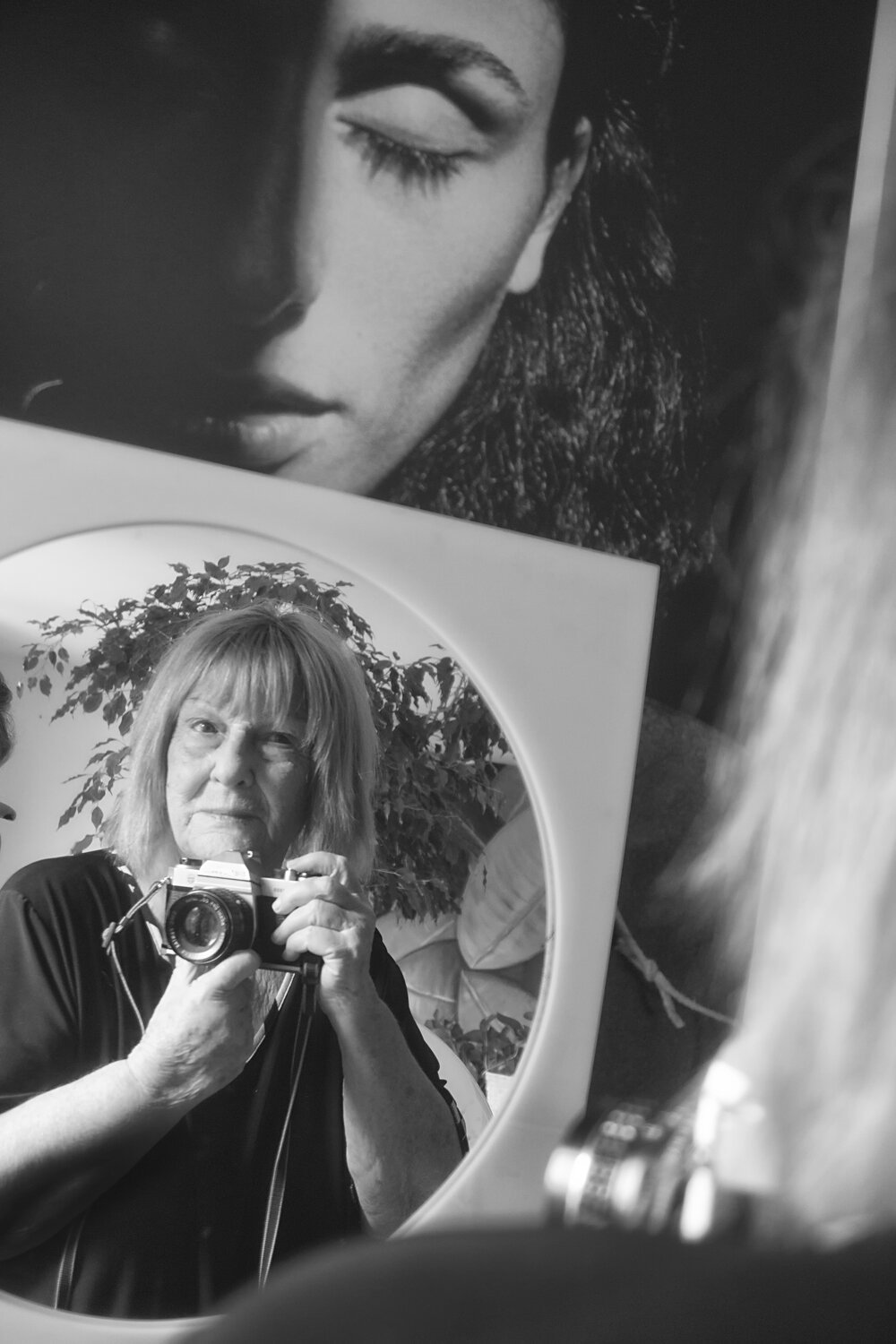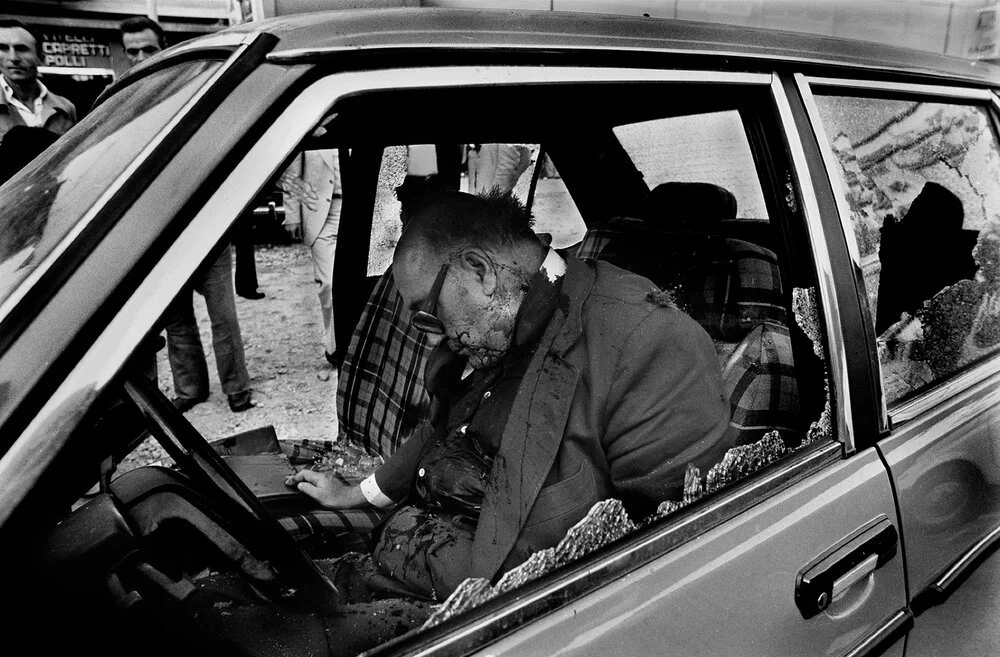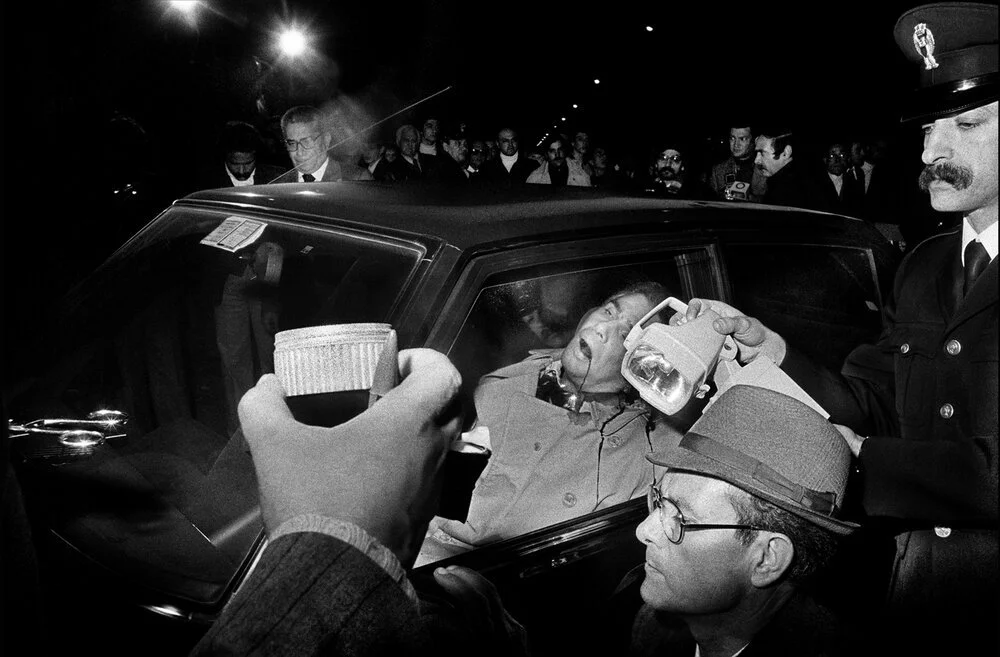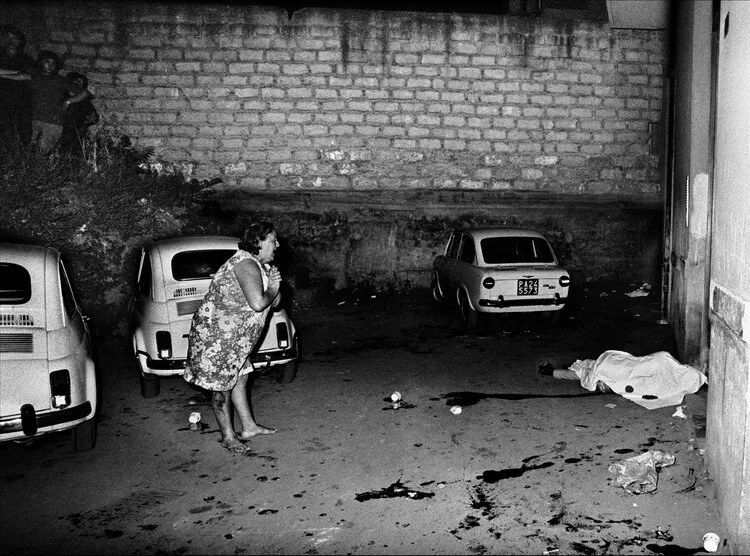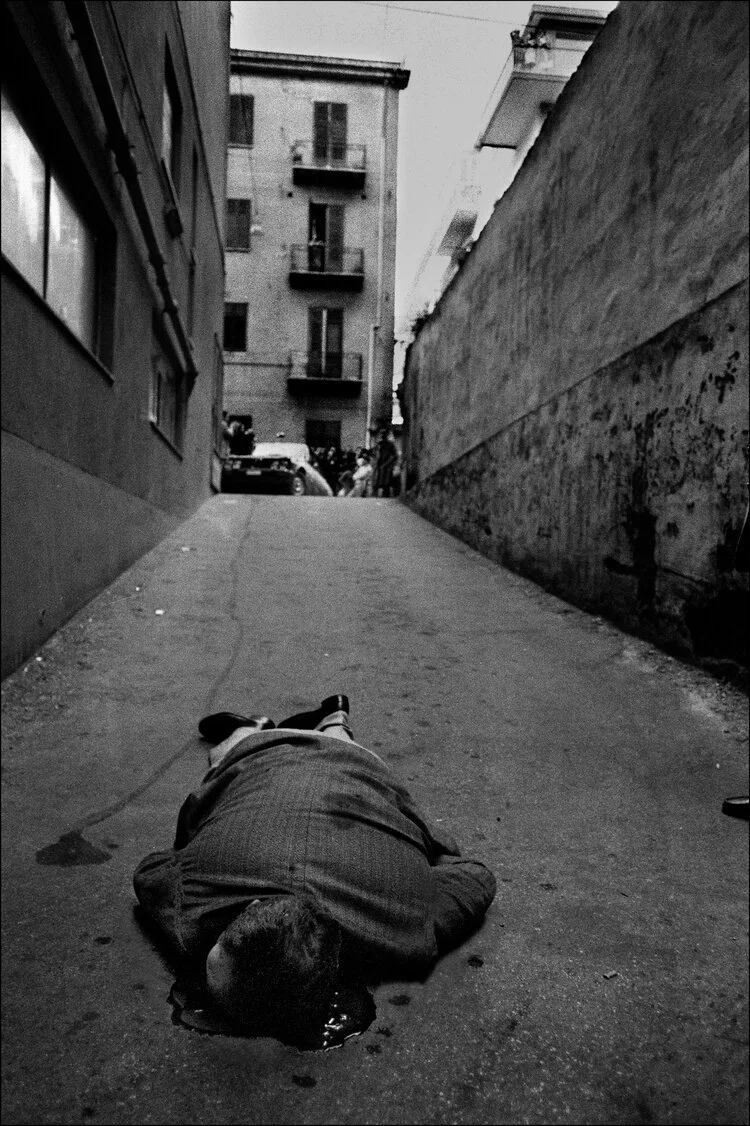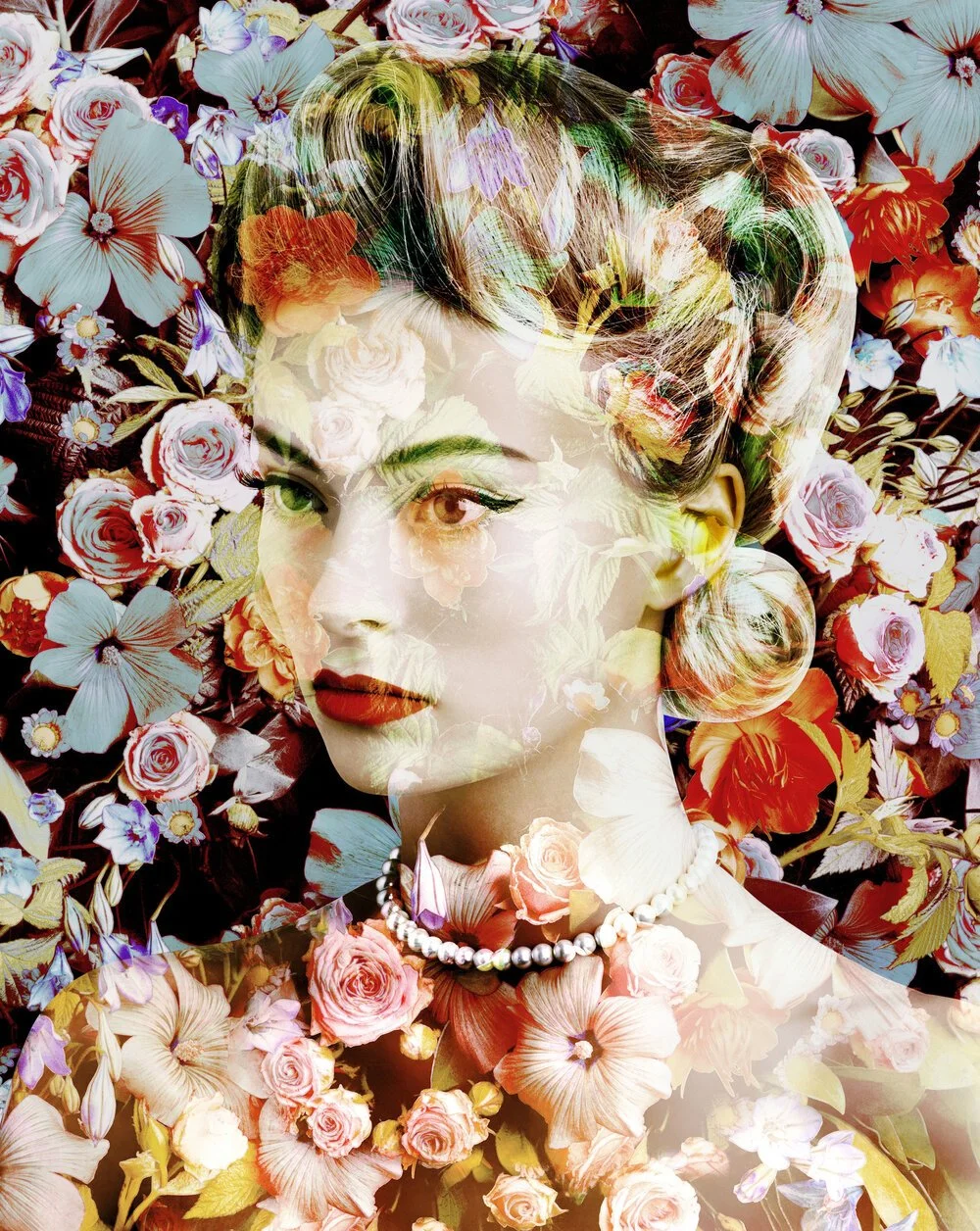From Our Archives: In Memory of Letizia Battaglia (1935-2022)
Portrait by Shobha
Musée Magazine: A news review of your developing photography museum in Palermo reports that, “the project is dedicated to the study and promotion of photography.” How do you plan to promote photography by means of this institution? Do you plan to incorporate community programs with educational exhibitions?
Letizia Battaglia: My center will be wonderful. Photography will be promoted, explicitly studied with passion and discipline. There will be exhibitions, encounters, workshops, and screenings. Talent will find a place to grow, learn, give and receive. It will be an international venue where knowledge is exchanged; a place where photography will often be seen alongside music, poetry, theater performances, and cinema. A strong social commitment will be fundamental to all of this. In addition, there will be a photographic archive of the city of Palermo, something entirely new. I am asking photographers from around the world who have photographed Sicily to each donate at least one photograph made in Palermo. I am asking citizens to give the center their old family archives, to reconstruct the life of our community, to reconstruct the memory of my complex and fascinating Palermo.
Musée: Why do you believe that your community would benefit from learning about photography? What do you think the medium has to offer humanity?
Letizia: I was saved by photography. I was a young, intelligent, desperate woman. My encounter with photography allowed me to express my thoughts, my rebellion, my social and political commitment. People both young and old who visit the center will experience beauty, based, very simply, on commitment and knowledge. I already know that the people of Palermo are anxiously waiting for the International Center of Photography to get started. Many people are already working on programming, communications, and the search for talent. It will be so damned complicated and laden with beauty, they are almost terrified. Truthfully, my enthusiasm frightens me to no small degree. But I am courageous, and I will overcome my limitations. Photography as documentation, but also as artistic creation, is culture; and culture is fundamental to the growth of a community. A culture that is free from outside influences, one that is revolutionary, is as important as bread that nourishes the body.
Letizia Battaglia, Ucciso mentre andava in garage, 1976.
Musée: Can you describe the current state of photographic culture in Palermo? Do you perceive that your museum will have immediate interest and clientele, or is this something that you hope to develop in the community yourself?
Letizia: Throughout the world there have been, and there are, wonderful photographers who come from Palermo, from Sicily. First among all, is Enzo Sellerio. Then, Thomas Roma in New York, a photographer, university professor and winner of two Guggenheim grants. Then there’s Ferdinando Scianna from Magnum in Milan, and Santi Caleca, the most elegant and highly regarded Italian photographer of interiors and design, as well as Franco Zecchin in Marseille, and Shobha, my daughter, in India. And I too, even while remaining in Palermo, have received great recognition for my work, specifically in the United States: the Eugene Smith Award, the Mother Jones Lifetime Achievement Award, and the Cornell Capa Infinity Award. There are so many well-known and talented photographers and so many others who need to be appreciated and nurtured.
Letizia Battaglia, Il giudice Cesare Terranova, 1979.
Musée: An article describes that your museum opening has been delayed due to “bureaucratic” issues. What in particular have been the challenges in opening a museum in Palmero?
Letizia: The mayor of Palermo, Leoluca Orlando, who for years has been battling to free Palermo from a disease that has afflicted the city for centuries, immediately accepted my proposal to establish a center for photography. I was given a building in the La Zisa cultural district, a pavilion of industrial archeology dating to the early years of the twentieth century-- pavilion 18 to be precise. An amazing architect, lolanda Lima, designed a very modern restoration, and she did it gratis. All this happened five years ago. It took five years to move forward with the work, which at times came to a halt, and sometimes only advanced very slowly. I don’t know why. You never know why. Things are like that in Palermo. But finally we got it done. There are still some small bureaucratic things to attend to, but the center is set to open at the end of October.
Letizia Battaglia, Donna crede che le abbiano ucciso il figlio copia, 1980.
Musée: Will your center focus on international photography or photography shot in and around Palmero, or both?
Letizia: I won’t have much money and I still don’t know if I will have sponsors. I dream about it at night because I still don’t know how to accomplish all this. The city will give me a small amount and, with this, I will try to program everything. Even if I live in Palermo, far away from the great cities of the world, I think our culture and our history has international, not just regional, significance. And I am interested in important photographers from all over the world, but especially those who are trying, with difficulty, to grow. The first show, which will inaugurate the opening of the Center, is curated by Giovanna Calvenzi, a Milanese curator and historian of photography. There will be 34 photographers who are engaged with issues of emigration, a very current issue in Europe. The show will have the wonderful title: Io Sono Persona (I am a person). Calvenzi is working so hard on this and she is doing it gratis, out of love for Palermo and for me. Melissa Harris, a curator, historian, and teacher from New York, has worked on a group show called, Women Photograph Women. The exhibition will include eight photographers, including important American female photographers, as well as one Mexican photographer. Melissa is also doing this out of love. The expenses will be limited to the frames, insurance, shipping, and publicity. The photographers have also not asked for any money. I am truly moved by such generosity, and I hope that some day I will be able to have enough money to pay a fee to everyone who works for the Center, which is how it rightfully should be.
Letizia Battaglia, Michele Reina segretario Provinciale della Democrazia Cristiana, assassinato da due killers davanti alla moglie, 1979.
Musée: Do you intend to exhibit the work of contemporary and emerging artists in your museum, or to focus exclusively on historical pieces?
Letizia: I am doing it all! I am also trying to bring to the Center, in 2018, wonderful work by Nan Goldin, Isaak Julien, Richard Billingham, Francesca Woodman, and others. I am trying to devise systems that don’t require massive amounts of money. A very distinguished curator, Paolo Falcone, who loves art passionately, is supporting me in this very difficult battle. But I intend to welcome, discover, and promote young artists who are talented and not yet famous, including Nerina Toc and Roberto Tempieri from Rome. Eleonora Orlando and my daughter, Marta, are also helping me with visual communications. I plan to collaborate with other galleries and museums. I sleep very little with all of these projects. I am always pushing myself toward an infinite world of possibilities that I would like to bring to fruition. It is fantastic that there are already so many people ready to provide support, even without my having any money to offer.
Musée: Most of your previous work has had a social and political focus, and you have worked extensively in politics yourself. You have used your images to address issues of corrupt authority, women’s rights, and the environment. Will your museum have a political focus as well?
Letizia: I am directing the International Center of Photography and I have already received recognition for my stance against the Mafia and racism. There will be various initiatives promoting those who are marginalized in society, initiatives promoting gays and lesbians, the mentally ill, and dreamers. No one can stop us. We are all too committed to moving these projects forward.
Letizia Battaglia, Opposite: Il deputato democristiano Rosario Nicoletti, suicida, 1984.
Musée: During your years documenting organized violence in Sicily you received many threats on your life from the mafia but you did not stop photographing them. Were you willing to die for these images? If yes, why?
Letizia: I am only inclined to live. My entire vital inclination is predisposed to joy, to the construction of beauty, to the victory of justice. It is precisely because I am so immersed in life that I don’t want to limit myself. They will do whatever they want if I annoy them.
Musée: What effect, if any, do you think your documentation of the mafia’s brutality had at the time?
Letizia Battaglia, Opposite: Vincenzo Battaglia, era uscito per comprare i cannoli. Lo hanno ucciso al buio, tra la spazzatura. Sua moglie aveva cercato invano di aiutarlo, 1976.
Letizia: I don’t think my photos have helped to upset or destroy the Mafia. It is still there, even if hidden - the Mafia clearly is not involved with the mayor of Palermo. It is waiting for the right moment. Meanwhile, a serious and very threatening judge, Nino Di Matteo, working in solitude, has moved ahead with his case against negotiations that took place between a representative of the Italian state and the Mafia itself. Many Sicilians love this judge and are fighting against corruption. Here in Sicily, everyone has do to his or her part. Maybe, together, we can get it done.
Musée: What effect do you think these images have today?
Letizia: I see a lot of feelings being stirred up, a lot of attention being given to my work and to what we Sicilians have endured over the years. Many young people write to me, wanting to attend my workshops, to meet me and show their love for me. I believe this is very important, it has nothing to do with success or vanity. My center will open its doors. And it will be wonderful to experience this entire exchange of cultures and commitments. Yes!


